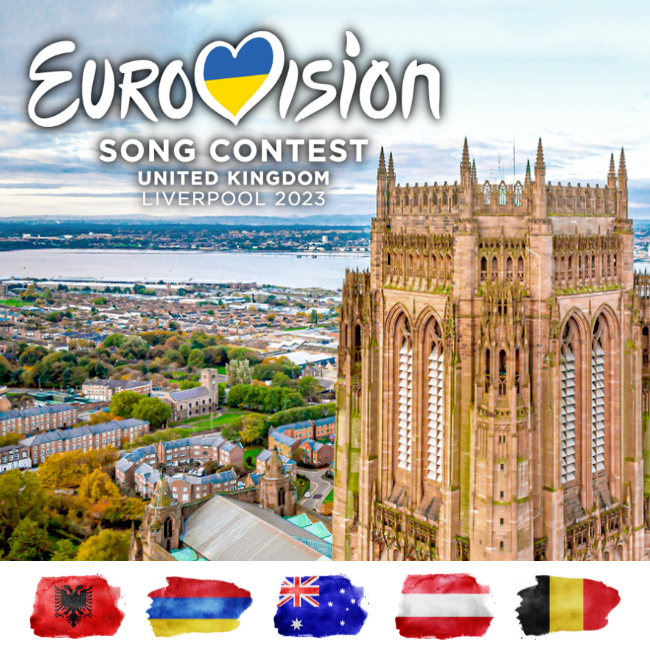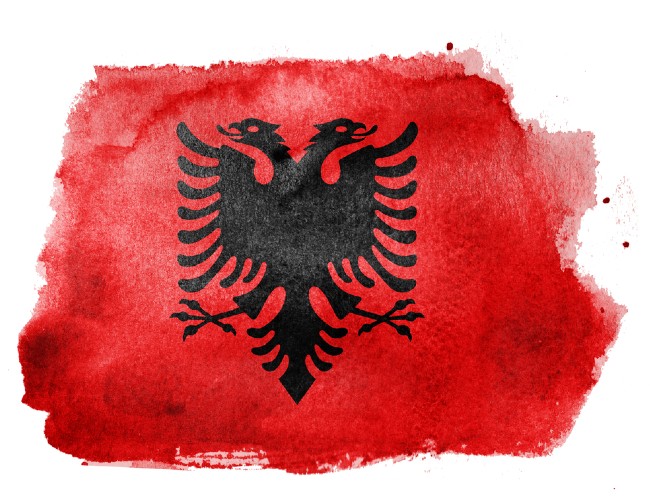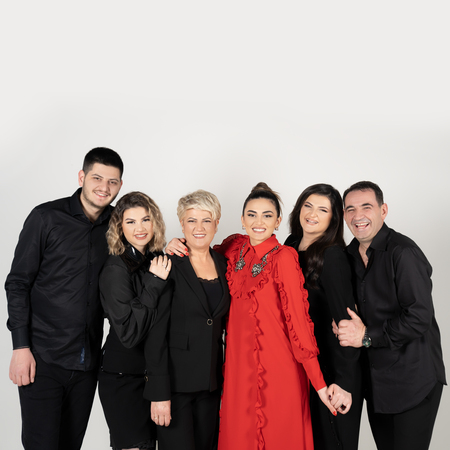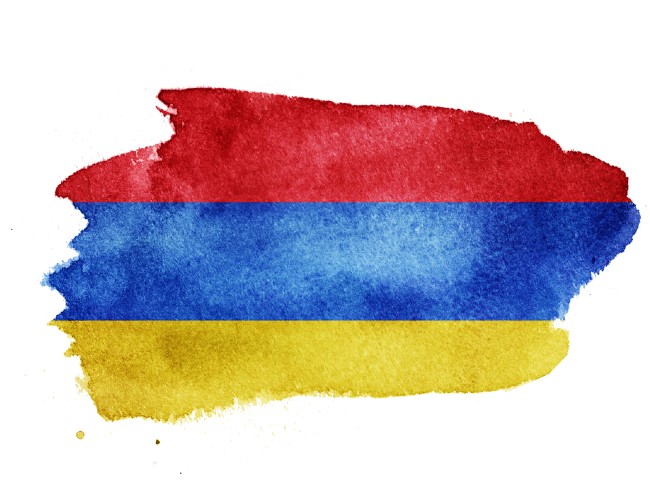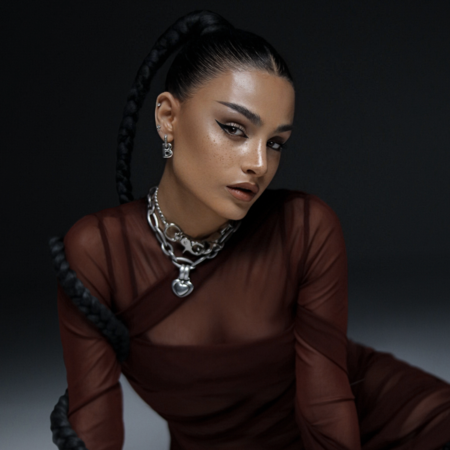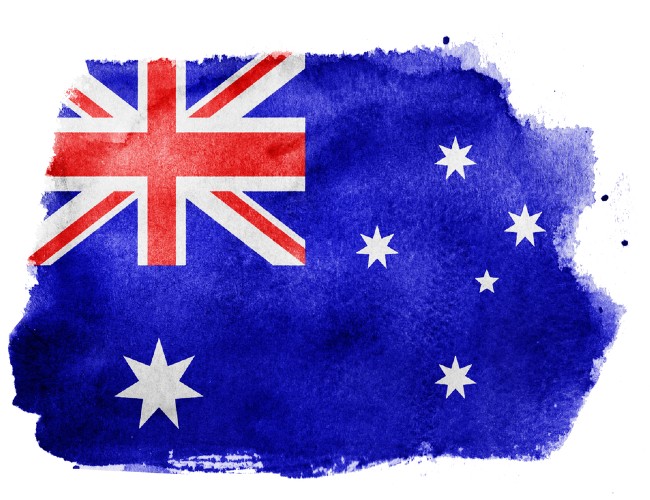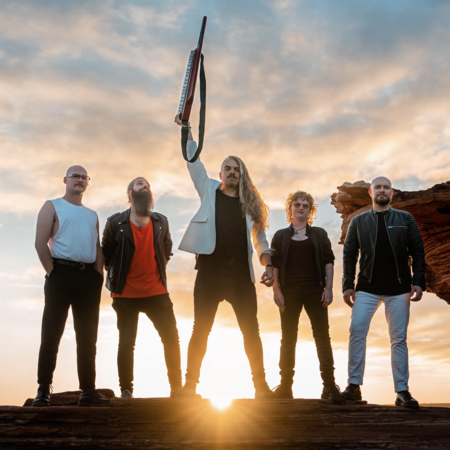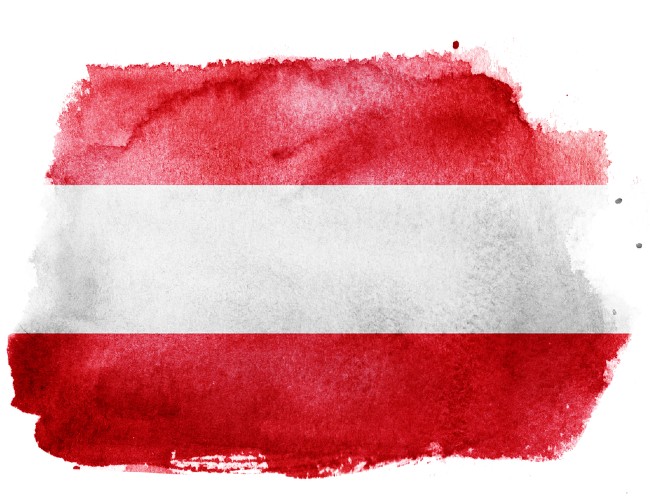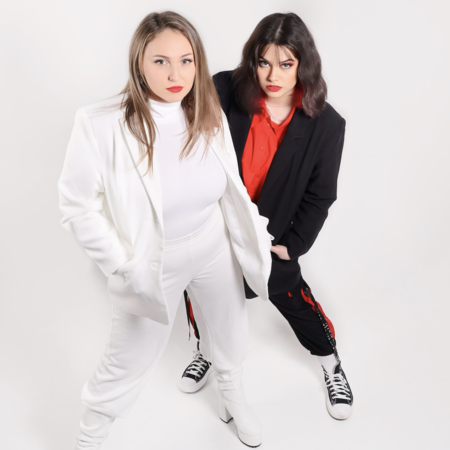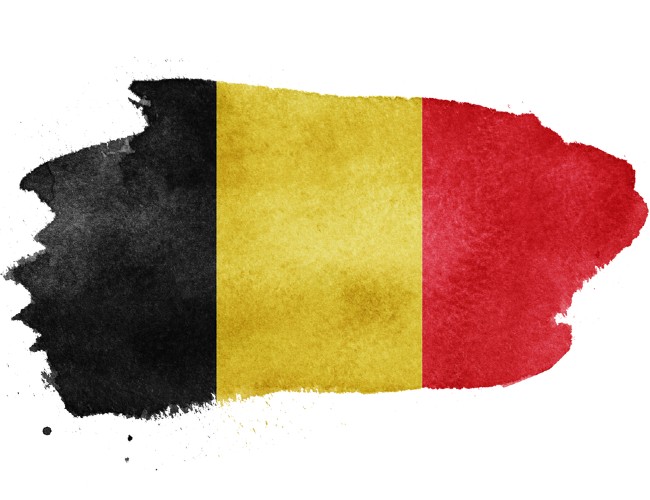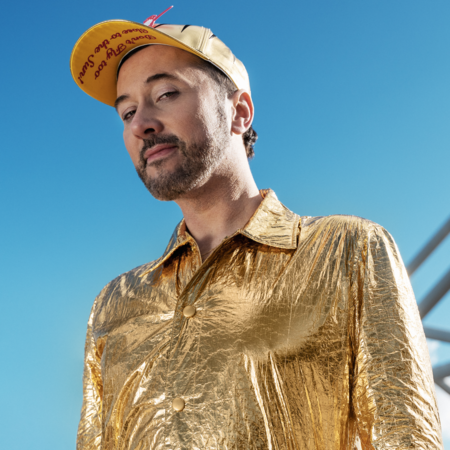What is the Eurovision Song Contest?
Started way back in 1956 as a way of drawing a fractured Europe back together with the healing power of music, the Eurovision Song Contest, or Concours Eurovision de la Chanson – the contest is telecast in both English and French – is open to all active members of the European Broadcasting Union, which oversees the competition.
Each country is permitted to submit one three-minute song to the contest – a song which is selected by a variety of means, usually a winner-takes-all competition such as Sweden’s renowned Melodifestivalen – which their selected entrant performs in one of two semi-finals in the hopes of making it to the glittering grand final.
Only six countries have direct entry into the grand final:
- The Big Four who fund most of the contest – UK, Germany, France and Spain
- The host country (which is the winner of the previous year’s contest)
- Italy, who didn’t take part for many years and was re-admitted in 2011 after a 14 year absence (it was one of seven countries that competed in the first event), making the Big Four the Big Five.
The winner is chosen by a 50/50 mix of viewer votes (you cannot vote for your own country) and a jury of music industry professionals in each country, a method which was chosen to counter the alleged skewing of votes based on political and/or cultural lines when voting was purely the preserve of viewers at home.
Past winners include, of course, ABBA in 1974 with “Waterloo” and Celine Dion who won for Switzerland in 1988 with “Ne partez pas sans moi”.Above all though, the Eurovision Song Contest is bright, over the top and deliciously camp, a celebration of music, inclusiveness and togetherness that draws annual viewing figures in the hundreds of millions.
This year’s event
Sporting the theme “United by Music”, the Eurovision Song Contest 2023 is being co-hosted by 2022’s winner Ukraine (“Stefania” by Kalush Orchestra) and runner-up the UK. Traditionally the winner would host but Russia’s invasion of Ukraine in February 2022, which is ongoing, has meant that’s not possible so the contest will be held in Liverpool, with the event hosted by Ukrainian and UK presenters and a clear emphasis on the unity in music that Eurovision has always celebrated.
ALBANIA: “Duje” by Albina & Familja Kelmendi
THE ARTIST
Albina Kelmendi is no stranger to music.
Born into a musical family – according to her awwww-inducing official Eurovision bio, “Albina’s mother Albana and her father Bujar fell in love through music” which is rom-com worthy meet-cute moment I think we can all agree – Albina spent her growing up years studying clarinet and piano at the Halit Kasapolli music school in her hometown of Pejë, Kosovo before joining her family in the aptly and rather prosaically-named Family Band.
While she did strike out for solo musical pastures when she was the runner-up on series of The Voice of Albania, performing with mum, dad and siblings Albin, Vesa and Sidorela has always her Von Trapp thing, and so she and the fam performed at Festivali i Këngës 61 which chooses Albania’s representative to the Eurovision Song Contest.
But there’s a twist, yes, a twist!
The family only came second in the jury vote on the deciding night, the public adored, loved and voted for them and so they went through to where they now stand, ready to hopefully the music hungry voters of Europe.
THE SONG
Performing the song “Duje” which is, and here’s the official bio again, “about the role of love in the family, and overcoming every challenge that life brings”, Albina & Familja Kelmendi have gone down the mixing traditional Albanian folk with somewhat modern music route.
The result is a perfectly lovely song, anchored by Albina’s emotive vocals which suggest someone living rather than simply the song, and it’s clear the family are used to making up a harmonic storm, delivering up an appealing fiesta of beautifully raised voices.
The track is one of those songs that stirs the soul and has a cultural authenticity that clears come from a place of deeply felt musical passion and so, in and of itself it’s a divertingly pleasing listen.
But up against other songs on the 2023 slate, which possessed both passion and real presence, it’s doubtful the Kelmendi, devoted to each other and delightful as they seem to be, will do much more than keep semi final 2 numbers ticking over.
It will be a surprise to see this hit the grand final …
ARMENIA: “Future Lover” by Brunette
THE ARTIST
While it isn’t made clear what will happen should Armenia’s representative to Eurovision ever decide to change her hair colour, the mononymically-named Brunette (aka Elen Yeremyan) certainly has presence.
A singer from the age when most kids are more worried about which part of the sandpit to play in at preschool, Brunette has been practising her vocal craft since age, adding music writing to her talent roster somewhere around 15.
That early start led to the release of her debut single, “Love the Way You Feel”, at the age of 18, a taste of musical success that led her to join the Yerevan-based nightclub-performing collective Project 12 and the girl group En aghjiknery (ThoseGirlz).
But while being part of a group is obviously something she loves, she’s kept up the release of solo material with 2022 packed to the chart-topping rafters with viral singles “Gisher”, “Smoke Break” and “Bac kapuyt achqerd”, two of them pushed to popularity through the expansive reach of social media.
But not even social media can compare to the length and breadth of the Eurovision Song Contest where is where Brunette now finds herself – can she deliver on the promise of this arena just as she in so many others?
THE SONG
If you’re hoping for an answer in the resounding affirmative then I am happy to oblige.
While “Future Lover” may not garner her the Crystal Trophy held aloft by the winner, it is an intriguingly beautiful pop song with an appealingly hard urban edge that seamlessly creates a highly-charged emotional atmosphere that will no doubt deliver a thrilling standout performance.
In many ways, it’s a classic piece of Eurovision pop that has all the drama and vocal flourishes you could ask for without once sounding derivative or overdone; it has just the right amount of import and power which is neatly balanced against an introspectively beautiful intro and outro.
This is a song that, like the artist, has presence, loveliness and emotional grunt and it will ensure that Armenia likely makes it into the grand final and places reasonably well.
AUSTRALIA: “Promise” by Voyager
THE ARTIST
Voyager are a five-piece band from Perth, over in Australia’s most-western state, and they came incredibly close to representing the country at Eurovision in 2022 with their brilliantly evocative song “Dreamer”.
Finishing as the runner-up to Sheldon Riley who went on to place Australia in 15th spot at the grand final with his arrestingly beautiful song “Not the Same”, Voyager (Daniel Estrin, Simone Dow, Scott Kay, Ashley Doodkorte and Alex Canion) are back and this time heading to Liverpool to hopefully do their home country proud.
A progressive metal band who should feel right at home in a contest that loves its mostly Scandinavian-sourced high-octane music, Voyager has been a going concern since 1999 (wth some personnel changes), touring the world with albums like Element V and uniVers to their collective credit.
Described in their official Eurovision bio, rather gushingly, as “massive Eurovision fans [who] have launched several attempts to compete since Australia joined the Contest in 2015”, Voyager are well and truly ready for their moment of Eurovision glory.
THE SONG
While expectation and realisation can be two wholly different experiences, there’s a better than average chance that Voyager are going to make the two land very much on the same gloriously successful page.
While initially not sounding quite as strong as “Dreamer” in its opening bars, which nevertheless still have a tingling anticipatory goosebump-inducing sense of emotively-charged things to come, “Promise” kicks into high gear very quickly with its chorus soaring, thanks to grippingly intimate vocals, and what lead singer and Perth lawyer Daniel Estrin called “epic progressive powerpop metal” in a feature in The Guardian, to the sort of song that is going to light the stage up in Liverpool.
Deftly bringing melody and metal which should appeal to the people of Europe (think Finland who routinely proffer this type of sound at Eurovision – “Our kind of melodic metal makes the charts [in Europe], when it doesn’t necessarily in Australia” – “Promise” is a showstopper of a song that should not only propel Australia into the grand final but to a likely top 10 placing, proof that musical presence and emotionally-alive vocals are the magic sauce that really set this most unique of contest alight.
AUSTRIA: “Who the Hell is Edgar?” by Teya & Selena
THE ARTIST
While far too many people deride musical reality TV shows, the truth is that they uncovered some seriously good talent in their time, and entertained people to boot, which might have otherwise not made it past the music industry’s gatekeepers.
Case in highly listenable point is Teya & Salena, who met during a season of the Austrian talent show Starmania 21, bonding, notes their official Eurovision bio, “over their love for the Eurovision Song Contest”, a shared passion that saw them “later put their heads together at a songwriting camp … specifically to enter Eurovision.”
It’s not the first time they have managed to get close to the bright lights and pyrotechnic-lit surrounds of the contest.
Salena was a runner-up in 2019 in pre-selection for Eurovision (beaten by PÆNDA) while Teya placed in exactly the same spot a year later against Vincent Bruno (the 2020 contest was cancelled due to the COVID pandemic and Bruno was given a chance to represent the country in 2021) but now they have the gig and are in pole position to hopefully secure Austria’s first grand final placing since 2018 when Cesár Sampson knocked it out of the park with “Nobody but You”.
THE SONG
And honestly I hope they storm into the grand final!
“Who the Hell is Edgar?” is a captivatingly good mix of quirky and satire, sounding like a pop delicious novelty song (ish; it’s far more accomplished than those types of songs) that comes with some stinging social commentary artfully bundled into its danceable three minutes.
The duo’s official Eurovision bio says the song draws “on their experiences as female songwriters in an industry that all too often doesn’t give women enough credit for their hard work and expertise”, and while songs with a message can be clunky or overdone, “Who the Hell is Edgar?”, with a cut-through melody line, an insistently catchy beat and incisive lyrics, is a thing of sublime beauty and fun.
It’s a delight to listen and to dance to and if this doesn’t strike a chord with Eurovision audiences, then you can take it up with Edgar Allan Poe.
This has to get Austria into the grand final or the world is a cruel and broken place that doesn’t deserve songs as cleverly funny as this one.
BELGIUM: “Because of You” by Gustaph
THE ARTIST
Gustaph knows his way around the key changes, pyrotechnics and costume changes of Eurovision like a pro, having backed two Belgian acts of recent years – Sennek in 2018 and Hooverphonic in 2021.
A twenty-year veteran of the music industry, Gustaph is an impressive triple threat handling singing & songwriting duties every bit as ably as he does producing and vocal coaching, honing his nascent skills initially at the Royal Conservatory of Ghent, where he was known by an another mononym entirely – Steffen.
With a debut single, “Gonna Lose You”, becoming an instant hit, charting high on the Flemish single chart and earning him, so says his official Eurovision bio, “Belgian Radio 2’s Zomerhit award for best debut of the year”, and a successfully move into songwriting and producing, not to mention some touring with the Pointer Sisters, Gustaph took a break from music at one stage, dealing with artistic pressures and a push for him to hide the truth about his sexuality.
But he’s back, and this time as the lead act in all his flamboyantly arresting glory …
THE SONG
“Because of You” is definitely going to coat the artist in some musical glory if there’s any justice in the world.
A fabulous slice of lo-fi disco that hits its hugely danceable strides about about two-thirds of its way through, the song is one of those songs that sneaks up on you, all quiet emotive beginning and hints of glossy musicality to come, before bursting forth into a retro dancefloor banger that is sure to light up the floor in Liverpool.
Sporting a range of fantastic costume choices that you can only hope are packed for the trip across the Channel, Gustaph looks like he has not just the musical chops to deliver a memorable appearance at Eurovision but the presence to make an indelible visual impression which will come in handy come voting time, especially handy since Belgium sits fourth in the running order where it’s easy to get overlooked when successful acts have done their thing.
This is going to really get things moving in semi final, filled with musical memorability, drag queens and vocal and dancing stylings that stamp Gustaph’s entry as one of those songs that will linger long after the last glittery beat …
So, we hear ya! You want all 37 songs and you want them now. We got ya … here you go …
